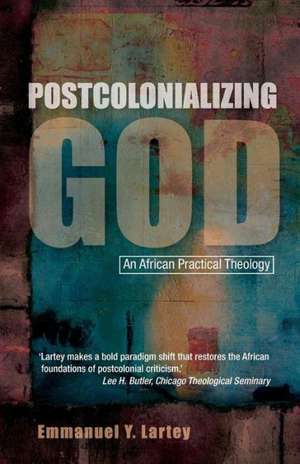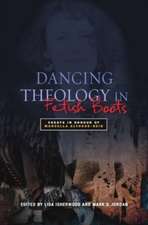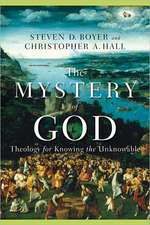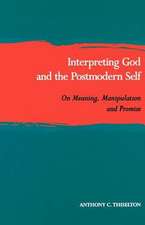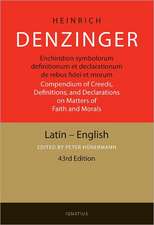Postcolonializing God
Autor Emmanuel Y. Larteyen Limba Engleză Paperback – 12 aug 2013
Preț: 217.97 lei
Nou
Puncte Express: 327
Preț estimativ în valută:
41.71€ • 43.22$ • 34.81£
41.71€ • 43.22$ • 34.81£
Carte disponibilă
Livrare economică 28 februarie-14 martie
Livrare express 14-20 februarie pentru 322.85 lei
Preluare comenzi: 021 569.72.76
Specificații
ISBN-13: 9780334029823
ISBN-10: 0334029821
Pagini: 138
Dimensiuni: 140 x 216 x 9 mm
Greutate: 0.2 kg
Editura: SCM Press
ISBN-10: 0334029821
Pagini: 138
Dimensiuni: 140 x 216 x 9 mm
Greutate: 0.2 kg
Editura: SCM Press
Notă biografică
Recenzii
In this book, Emmanuel Lartey has given us a practical theology rooted in African culture and spirituality, a theology that invites us to participate in the counter-hegemonic postcolonializing activity of God. Lartey offers an approach to pastoral care that is not only individually healing but, as he puts it, community-building and culture-transforming. His in-depth exploration of the ministry of contemporary Ghanaian mystic Brother Ishmael Tetteh provides a compelling lived example of his thesis. This is an informative and inspiring resource for all concerned with human liberation and the creation of a more just and compassionate world. -- LIza Rankow After centuries of Africa's involvement with Christianity, the twenty-first-century Western theological academy struggles to capture and theorize African spirituality as a dynamic and creative force in Christian and other religious cultures of African descendants worldwide. Emmanuel Lartey's Postcolonializing God changes the conversation by reconceptualizing the ritual sites and practices that constitute sacred experience across time and space in the Africana world. His intervention offers an accessible critique of unchecked colonial legacies still pervasive among far too many Christian communities in Africa and immigrant African diasporas. Grounded in fresh readings of select biblical narratives, enslaved and contemporary African diasporic spirituality and ecclesiology, post-slavery reconciliation rituals among Africans and African diasporans and a transcultural African mysticism, Lartey's vision for practical theology pushes African practitioners, priests and professors alike to complete the project of "postcolonializing God." By moving beyond mimicry and even improvisation toward the kind of creativity one witnesses today in the transatlantic healing ceremonies of the Joseph Project and the Ghanaian mystic Ishmael Tetteh's inclusively innovative Etherean Mission, Lartey maintains that Africans can build upon their exemplary spiritual heritages of synthesis and openness in religious formation and practice and thereby offer indispensible insight into human apprehension of the divine. Rarely since James Cone's Black Theology and Black Power has the world of Africana theology seen such a poignant claim about the unexpected places where God's revelation is to be found today. In 1969 Cone contended that the Black Power movement in America was one such place. Today Emmanuel Lartey reinforces Cone's judgment, arguing that many of Africa's established churches lag behind 'secular' and wider indigenous spiritual movements in performing and expressing God's revelatory power and presence among all creation. -- Dianne M. Stewart Diakite
